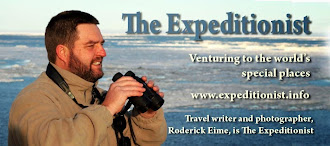WHAT IS LUXURY? AT ONE TIME, THE ANSWER TO THAT QUESTION WOULD HAVE BEEN EASY – IT IS THE THING THAT IS THE MOST EXPENSIVE, THE BEST QUALITY, THE MOST WELL-KNOWN.
But now, perceptions of luxury have moved beyond physical representations of wealth. There’s a shift away from conspicuous consumption of goods and towards investment in life-changing experiences.
The new luxury consumer is seeking authentic, meaningful, immersive and unique high-end experiences. These experiences provide a path to discover your authentic self, to create meaningful bonds, to strengthen relationships and to gain a deeper understanding of the world. And it’s why the theme for Luxperience 2019 is Experience is Everything.
“Luxury travellers are no longer satisfied with just a beautiful hotel suite, says Luxperience event director Michelle Papas. “We’ve recognised that the actual destination often isn’t the main factor when deciding where to travel. Experiences are driving luxury travel. Be it food and wine, shopping or sporting events, today’s high-end traveller is looking to immerse themselves in the destination and unique experiences that can’t be found anywhere else.”
According to Euromonitor, between 2013 and 2018 experiential luxury posted an average growth rate globally that was more than twice that of personal luxury – four per cent and 1.4 per cent respectively. Millennials are leading the charge with almost half saying that experiences are more important than tangibles.
The latest report from industry leader Skift echoes these figures. The US Experiential Traveler Trends 2019 survey found that travellers are looking for hyper-local, unique and transformative experiences. They identified a 20 per cent increase in travellers looking for travel experiences that would change their perspective on the world. At its heart is a desire to not feel like a ‘tourist’ but instead to have a genuine, authentic experience in a destination.
Luxury brands are getting on board with the trend. In early 2019 LVMH, the world’s largest luxury goods conglomerate finalised its purchase of travel operator Belmond for US$3.2 billion. It was a remarkable move for a company best known for running brands including Christian Dior, Bulgari and Moët & Chandon, and brings iconic travel offerings like the Hotel Cipriani and Venice Simplon-OrientExpress into the LVMH family. It’s evidence that high-end brands recognise the importance of experiences to their key customer base.
Milton Pedraza, founder and CEO of the Luxury Institute believes luxury goods companies have been slow to prioritise services. “If they want to remain viable in the future, they need to start investing in experiential or service brands,” he says. And technology could be the way forward.
In recent years, the industry has recognised that personalisation is one of the keys to creating a truly authentic experience for each traveller. Now, it’s gone a step further – thanks largely to technology. Skift has identified the emergence of co-creation and collaboration between travel company and traveller. “The control that travellers now have during every phase of their trip will begin to revolutionise the sector starting in 2019, and smart travel companies are paying attention to ways they can empower their customers without eroding the value of their brand,” says Skift’s Andrew Sheivachman.
The future of the industry is experiences that bring together the world’s best luxury brands and create personalised journeys for discerning travellers. The world awaits.


No comments:
Post a Comment